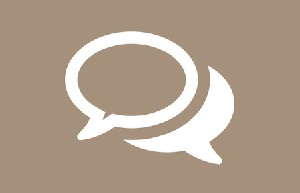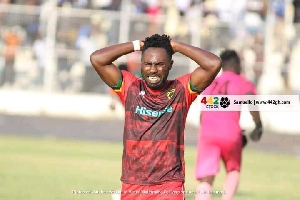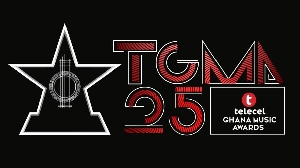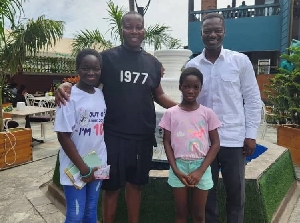- Home - News
- TWI News | TV
- Polls
- Year In Review
- News Archive
- Crime & Punishment
- Politics
- Regional
- Editorial
- Health
- Ghanaians Abroad
- Tabloid
- Africa
- Religion
- Election 2020
- Coronavirus
- News Videos | TV
- Photo Archives
- News Headlines
- Press Release
Opinions of Wednesday, 21 October 2015
Columnist: Bawelle, Eugene
Fruits of democracy; pitiable Ghana and admirable Singapore.
Permit me to start this commentary with a quote from Lee Kuan Yew, Singapore’s founding father. He said, “A precondition for an honest government is that candidates must not need large sums of money to get elected, or it must trigger off the cycle of corruption.
The bane of most countries in Asia has been the high cost of elections. Having spent a lot to get elected, winners must recover their costs and also accumulate funds for the next election. The system is self-perpetuating.”
Having looked at the stories of Ghana and Singapore in this democratic dispensation, it is worth analyzing the effects of ‘democracy’ on these two nations. The world has largely moved from dictatorial and communist rule to the practice of democracy, thanks to big brother America. Except for places like China where after the overthrow of Generalissimo Chiang Kai-shek in 1946 in the Chinese civil war and the Communist Party taking over, many countries the world over have become a Trojan horse of democracy.
The fruits of democracy are myriad and abound. These include freedom of speech, free press, freedom of association and many more. Generally, the fruits of democracy act as a conduit for development and offer a congenial environment for co-existence. So why is it that Nkrumah’s Ghana is miles behind Lee Kuan Yew’s Singapore today when the two were almost at par in 1960?
One cannot look beyond the shoulders of leadership in an attempt to answer the above question. Everything rises and falls with leadership. Leadership is inexorably the cause; every other thing is effect. That leadership is one of the main causes of Ghana’s underdevelopment cannot be overstated. We have suffered a malady of leadership crisis over a long period of time. Ghana’s current development crisis can be argued as a crisis of its leadership. There is a general break down or lack of faith in the institutions and people who have led and are leading us.
The break down in institutional effectiveness has led to an institutionalization of corruption. It is estimated that Ghana loses more than a billion cedis annually to corruption. The general malaise of effective leadership is one of the chronic problems facing this country. A good people with a bad leadership will result in bad governance. To quote Prof. Frimpong Boateng, “The quality and life of the society depends on the quality of the leaders. As a person cannot function without a brain, so a society cannot function without leaders.” The resultant effect of our bad leadership over the years is the inability of the citizenry to acquire or enjoy basic social amenities like roads, water, shelter and food.
Ghana attained independence in 1957. At age 35, Lee Kuan Yew was prime minister of self-governing Singapore. They separated from Malaysia in 1965 over fundamental policy disagreements.
When Singapore separated from Malaysia, the government of Lee Kuan Yew set out to have a clean administration. In his book “From Third World to First”, the Prime Minister said that “we were sickened by the greed, corruption, and decadence of many Asian leaders” and “We had the deep sense of mission to establish a clean and effective government”. With strong fortitude and a credible programme committed to scientific and technological development, Lee Kuan Yew and his team were able to live up to their good intentions and Singapore, which in 1819 was a village with 120 fishermen without any natural resources and hinterland, propelled itself from third world squalor to first world affluence in just 35 years (paraphrasing Prof. Frimpong Boateng).
Same cannot be said of Ghana. From a prosperous and thriving economy in the early 60s, we are now a committed disciple of the Bretton Woods institutions, exiting one programme and joining the next programme of the IMF and/or World Bank.
A few days ago, I got a WatsApp message from a friend. The message aptly described the contemporary Ghanaian situation. Ghana, he said, was foretold in the Bible. Micah 3:11 “Her leaders judge for a bribe, her priests teach for a price, and her prophets tell fortunes for money. Yet they look for the Lord’s support and say, ‘is not the Lord among us? No disaster will come upon us” Amen!!! Hypocrisy isn’t it? They engage in political chicanery. In Singapore, leaders take delight in virtuoso and honest performance and engage God for long life not personal gain.
Furthermore, one major factor that has transformed Singapore and indeed the entire East Asia is the sense of nationhood and responsibility of their citizens. There exists an inseparable relationship between rights and responsibility. Here in Ghana, however, people are quick to catalogue their rights yet very reluctant to accept the fact that those rights do not stand in insolation but accompanied by some level of responsibility.
The result is that morals have fallen, respect has dissipated, personal responsibility is arguably non-existent and every misfortune is attributable to one culprit - the government. On his Facebook page, Boris Kodjoe, the Ghanaian- German actor, posted a picture of himself and John Mahama with the caption; “Meeting with Ghanaian President John Dramani Mahama. Great man who sees tremendous value in the empowerment of girls and pushes hard to end child marriages in Ghana.” Then a young man (I had to look at his profile), one Prince Boakye says in reply “he lied to you, man. That’s corruption standing next to you”. In an attempt to defend Prince Boakye, a second person espouses Prince’s right of fundamental freedom of speech and the fact that Ghana is a democratic country.
I shook my head and wondered where our sense of respect and responsibility was. You may not like John Mahama as the President of Ghana, but once the majority of the voting population choose him over others, he represents Ghana and when you insult him, you are indeed insulting Ghanaians. Agreeing with Lee’s assertion, democracy works well where the people have that culture of accommodation and tolerance which makes a minority accept the majority’s right to have its way until the next election, and wait patiently and peacefully for its turn to become the government by persuading more voters to support its views.
Among the four Asian Tigers (Singapore, South Korea, Hong Kong and Taiwan), people assume personal responsibility to the extent to which they assert their rights. When Singaporeans fail, they blame themselves or their bad luck. They pick themselves up and try again hoping luck shines on them. In Hong Kong, people do not depend on their government. They work hard, mindful of their rights and responsibilities to themselves and their families. They are driven and well-motivated.
In our part of the world, when we do not succeed, we blame government since we assume that it is the duty of the government to make our lives better. We expect government to give prizes at the end of the day even to people who have not done well. When our favorite political parties do not win, we despicably treat those in power with scorn and show no respect. We consciously work very hard to make sure they do not succeed. We do not take responsibility for our own actions/inactions and utterances and are quick to allege political targeting.
In response to a question at the “Shared Prosperity Forum” at the University of Ghana, the World Bank President, Dr. Jim Yong Kim compared Ghana to Korea. He said that the Korea of 1958 is the Ghana of 2015. I felt very sad. To put it more succinctly, yet Ghana was the country that was supposedly so successful at managing its non-oil economy that at one point in time, “we were regarded as the poster child for a great story of “Africa Rising”.
On August 05, 2014, the Financial Times carried the headline: “Ghana tarnishes ‘Africa Rising’ Story”, as we were forced to run back to the IMF for a bailout. We had worked hard to wean ourselves off dependence on the IMF to enable us undertake the growth that would transform our nation. Now with oil, Ghana is on a downward slope. The sudden and calamitous decline has left many friends, many institutions, and many investors totally perplexed. How did it all go spectacularly wrong?” More answers to be provided in part two of this article.
Eugene B.G Bawelle.
The author is an Economic Policy Analyst and
Executive Director of the Bangfu African Research Institute (BARI).











